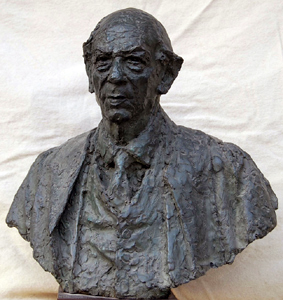Isaiah Berlin and Riga
Isaiah Berlin was born in Riga (then part of the Russian Empire, now capital of Latvia) on 6 June 1909, and lived there until June 1915, when his family moved to Russia proper. He returned in October 1920, when the family left the Soviet Union, and emigrated to England in February 1921, having spent only four additional months in the city. Apart from a brief visit in 1926 or 1928 (depending on which statement of IB’s one believes), he never saw Riga again.
The annual Isaiah Berlin Day in Riga
Since 2009, the centenary of Berlin’s birth, an annual Isaiah Berlin Day has been held in Riga, featuring a keynote lecture and other lectures and events. Some have been recorded:
Excerpts from the 2009 centenary celebration
- Timothy Garton Ash, ‘Isaiah Berlin, Europe and Diversity’ (inaugural Berlin Lecture)
- Introductions | Vaira Vīķe-Freiberga | Henry Hardy, ‘Isaiah Berlin in Person’ (VV-F 0:44; HH 19:10)
- Avishai Margalit, ‘Isaiah Berlin: Home and Homeland’
- Ian Buruma in conversation with Bill Emmott, ‘Isaiah Berlin as a Public Intellectual’ | Justin Cartwright, ‘The Song Before It is Sung’ (JC 52:46)
- Steven Lukes Q & A, ‘Isaiah Berlin the Liberal’
- Aryeh Neier in conversation with Charles Grant, ‘On Positive Liberty’
Later lectures
- 2010 Anne Applebaum, ‘The New Authoritarianism’
- 2011 Ian Buruma, ‘The Pleasures of Liberalism’
- 2011 Henry Hardy, ‘ “My Name is Isaiah Berlin and I Come from Riga” ’
- 2012 Michael Ignatieff, ‘Isaiah Berlin, the Soviet Union and the Captive Nations’
- 2013 John Gray, ‘Isaiah Berlin and the Meaning of Freedom’
- 2014 T. H. Ilves, President of Estonia (untitled)
- 2015 Henry Hardy, ‘Isaiah Berlin on Human Nature’
- 2016 Anatoly Naiman on Berlin’s meetings with Anna Akhmatova (in Russian without subtitles; first part and end of lecture missing because of a technical problem on the day)
- 2017 Timothy Snyder, ‘From Inevitability to Eternity: The New Politics of Unfreedom’
- 2018 Stephen Kotkin, ‘Turning Points: Yesterday’s World, and Tomorrow’s’
- 2019 Margaret MacMillan, ‘Isaiah Berlin, History and the World of Today’
- 2022 Yuli Tamir, ‘Uncertainty and Freedom’
- 2025 Edward Luce, ‘Brzezinski and the Revenge of Geopolitics’

The plaque at Berlin’s birthplace
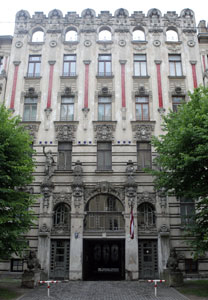
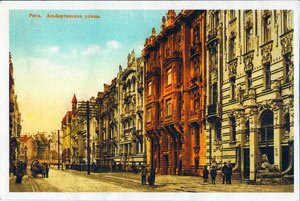
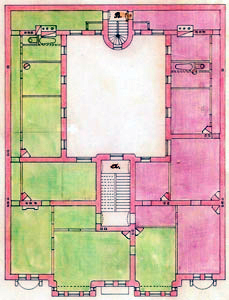
(far left) 2a Albert Street, the house designed by Mikhail Eisenstein where Berlin was born (in flat 8 on the fourth floor)
and spent his early years; (centre left) postcard of Albert Street at about the time of the Berlins’ residence there (is Berlin standing in front of 2a?!); (near left) original architect’s plan for the upper flats (flats 3, 5 and 7 in green); (right) the interior of flat 6 in 2011 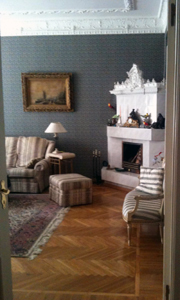
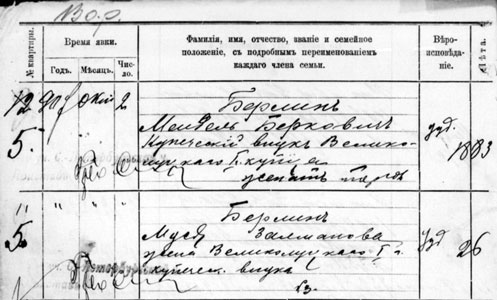
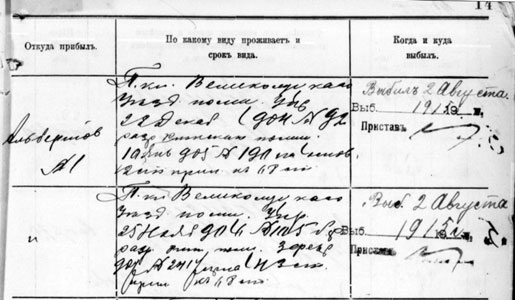
Log book for 2a Albert Street, showing entries for Mendel and Marie (‘Musya’) Berlin which read in part: ‘Berlin, Mendel Berkovich, merchant, grandson of a merchant of the first guild of Velikie-Luki, Jew / Berlin, Musya Zalmanov[n]a, wife of the grandson of a merchant of the first guild of Velikie-Luki, Jew’. It also shows that they moved out on 2 August 1915. The numerical references in the entries about permission are to the Russian Passport Charter of 1903, article 68, which governed ‘the permanent or temporary residence of Jews, both within and outside their [pale of] settlement’. Click on the images to enlarge.
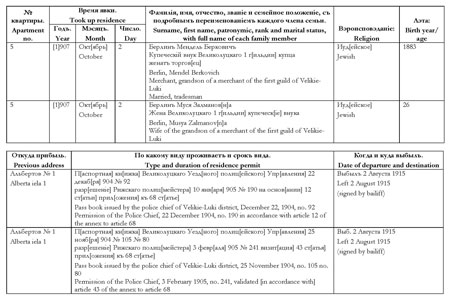
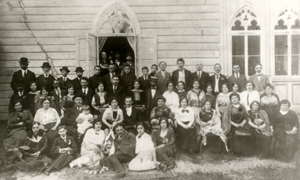
Berlin’s family often repaired to the seaside at Dubulti, near Riga.
Click photo to enlarge and see identifications
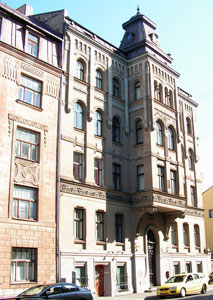
86 Dorpat Street, now Tērbatas iela, where the Berlins lived from 15 October 1920 to (probably) mid‑February 1921, in a room in flat 3, which belonged to Uriah Berchin. Mendel left for England at the beginning of January 1921 to find a home for his family, who joined him on 20 February.
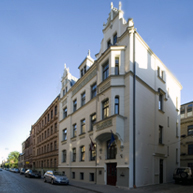
Berlin’s maternal grandparents Salman and Rodsia-Freude Volshonok originally lived in the Red Dvina ‘ghetto’ district
in the north of the city, but they later moved to smart downtown Riga. There they lived first at Dzirnavu iela 2 (left), now a hotel, then at
Pulkveža Brieža iela 13 (right), flat 16, in the same building (now part of a hotel complex) as Salman’s brother Victor/Avigdor.
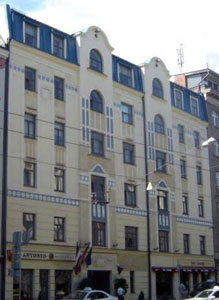
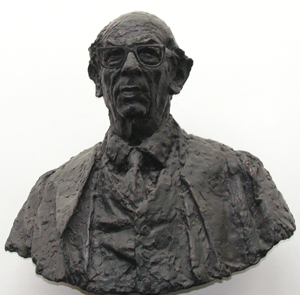
Anthony Stones’s bust of Berlin has been cast twice: the results may be seen (left) in the library at Wolfson College, Oxford;
(right, without the spectacles) in the National Library of Latvia in Riga
